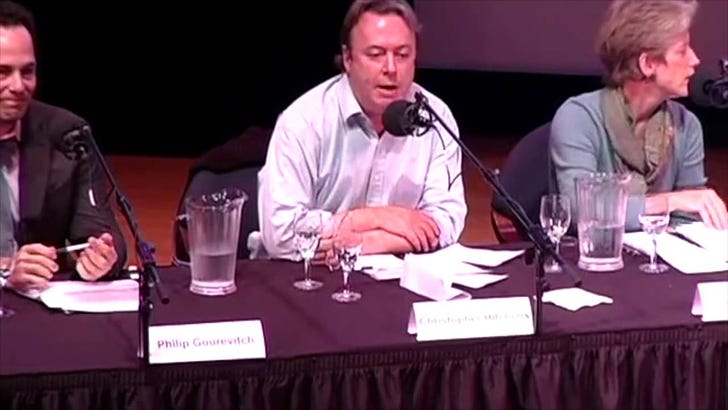This is the third and last summer read. You can find previous pieces on J.K. Rowling here, and Hilary Mantel here. They are for paying subscribers but it is easy to upgrade!
J.D.Vance is in the UK, enjoying a holiday in the Cotswolds, and demonstrating as he does so that the supposed champion of the white working class is perfectly at home in this playground for the English aristocracy.
There was a time when people from the libertarian left like Christopher Hitchens, or indeed me, would have put our sarcasm aside and expressed sympathy for Vance’s denunciations of the suppression of basic freedoms in “liberal” Europe. Anyone with knowledge of history knew that the left could oppress and conservatives could on occasion be allies as well as enemies.
Or so it once seemed.
Now that naïve thought is dead and in its grave.
Trump and Vance have shown that the right is willing to overturn free elections, lie on an industrial scale, and use the power of the US state to attack its critics. Perhaps I am still being naive, but I remain stunned by the number of conservatives who are willing to go along with autocracy for the sake of owning the libs.
In 2023, I tried to imagine how my old friend Hitchens would have coped if he had lived on into the 2020s.
Not very well, was the polite answer. As I said at the time, it was obvious by then that the progressive embrace of cancel culture undermined its cause. Let us hope that the same is true today of the MAGA thugocracy’s embrace of authoritarianism, which so threatens our world.
What’s left of Christopher Hitchens?
The most successful political movements pretend they are not political movements at all. They want the public to believe their goals are not ideological but common decency, and who could possibly object to that?
Nowhere is the denial of the political more strenuously proclaimed than on the “woke left” – or, if you do not like the term, “the social justice left”.
The confusion about names is symptomatic. Because the movement denies its existence, it can say that the right and, indeed, the far-right has conjured up wokeness as a phantom menace.
Widespread hilarity and relief therefore greeted the failure last week of a US conservative author called Bethany Mandel to explain what she meant when she used the term “woke.” Her new book “Stolen Youth,” accused liberals of targeting children with “woke indoctrination.” Yet she could not say what she meant.
Mandel’s inability to define her terms supposedly proved that today’s liberal-left is no different from its predecessors.
The best retort I have read recently came in a new book from the American writer Matt Johnson How Hitchens can Save the Left: Rediscovering Fearless Liberalism in an Age of Counter-Enlightenment. Johnson offers more than an examination of Christopher Hitchens’s life and thought. His research takes him from the controversies about the Russian Revolution to today’s culture wars.
No one reading it can deny that there has been a jolting cultural change in the US left over the past 10-15 years. I cannot see why progressives would deny it, unless they want to place their ideology beyond the normal bounds of debate.
Two ideas can be true simultaneously. A new and distinct “woke” ideology developed after 2010 in American academia, and boorish right-wingers use “woke” to mean “whatever I don’t like”.
Here is my map of how left-wing thought shifted and four reasons why the movement may have passed its peak.
The policing of dissent
It has never been true that only states censor. Employers and political and religious communities have always limited free thought, as has peer pressure. Writing in his preface to Animal Farm in 1945, George Orwell said that “the sinister fact about literary censorship in England is that it is largely voluntary. Unpopular ideas can be silenced, and inconvenient facts kept dark without the need for an official ban”.
He might have been writing today.
Keep reading with a 7-day free trial
Subscribe to Writing from London to keep reading this post and get 7 days of free access to the full post archives.



